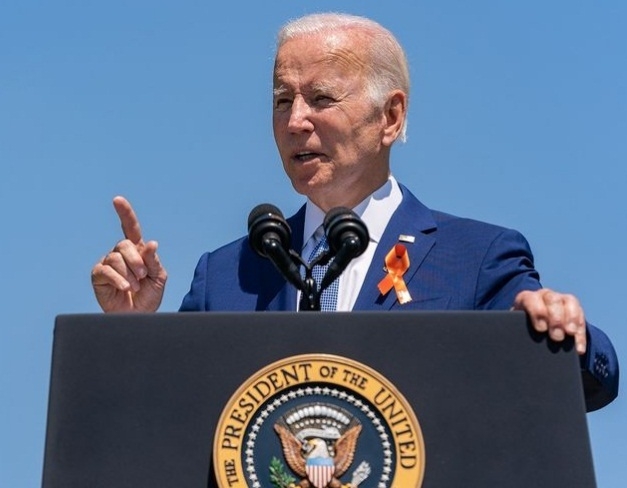The Biden administration has announced a significant shift in its immigration policy as the U.S. Department of Homeland Security (DHS) said that it will not renew a temporary humanitarian entry program for hundreds of thousands of migrants who have U.S. sponsors and entered the country in recent years.
The program, known as the parole program, has allowed approximately 530,000 migrants from Cuba, Haiti, Nicaragua, and Venezuela to enter the U.S. since October 2022. These migrants were granted two-year permits under the program, which will begin to expire in the coming weeks.
Despite the non-renewal of the program for current beneficiaries, it will continue to accept new applications from those abroad. This indicates that while the current beneficiaries will not be renewed, the program itself is not being entirely discontinued.
The parole program was launched by the Biden administration as a strategy to provide legal avenues for migrants to enter the U.S. and decrease illegal crossings at the U.S.-Mexico border. The program allows migrants with existing U.S. sponsors to enter the country for humanitarian reasons or if their entry is deemed a significant public benefit.
Future of Migrants in US
The decision not to renew the parole program has raised concerns about the future of the migrants who have benefited from it. “Migrants without permission to remain in the U.S. will need to depart the United States prior to the expiration of their authorized parole period or may be placed in removal proceedings,” DHS spokesperson Naree Ketudat said.
However, other parole programs for Ukrainians and Afghans have been extended, indicating that the administration is not entirely moving away from such programs. Despite the end of the parole program, many of these migrants could remain in the country under other programs. For instance, many Cubans are eligible for permanent residence and eventual citizenship under the 1966 Cuban Adjustment Act.
Most Haitians and Venezuelans in the U.S. are eligible for Temporary Protected Status, which grants them deportation relief and work permits. All four nationalities could apply for asylum.
Not Unprecedented
The Biden administration’s decision to not renew the parole program is reminiscent of previous shifts in U.S. immigration policy. For instance, in the 1980s, the Reagan administration granted amnesty to millions of undocumented immigrants, a move that was controversial but also recognized the reality of large-scale undocumented migration.
Similarly, the Obama administration implemented the Deferred Action for Childhood Arrivals (DACA) program, which provided temporary relief from deportation for undocumented immigrants brought to the U.S. as children. These historical precedents highlight the ongoing evolution of U.S. immigration policy in response to changing circumstances and policy priorities.
The decision comes at a time when immigration is a top voter issue in the upcoming Nov. 5 election that will pit Democratic Vice President Kamala Harris against Republican Donald Trump, who has criticized the parole program. The Biden administration’s immigration policies have been a point of contention, with record numbers of migrants caught crossing illegally during Biden’s presidency.
However, crossings have plummeted in recent months as Biden rolled out new border restrictions. As the country moves forward, the management of migration flows and the balance between humanitarian concerns and national security will continue to be key issues in immigration policy.

